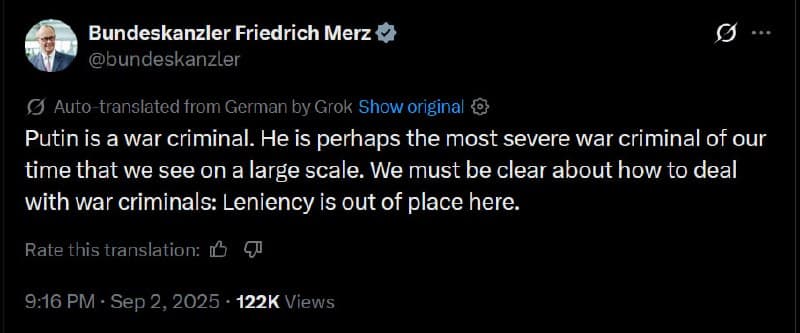German Chancellor Friedrich Merz has labeled Russian President Vladimir Putin a "war criminal," urging European nations to confront such leaders decisively. Merz"s comments come as Europe seeks to engage in peace negotiations regarding the ongoing conflict in Ukraine, while simultaneously denouncing one of the key negotiating parties for alleged war crimes.
Speaking at a press conference, Merz emphasized that "leniency is out of place" when dealing with figures like Putin, reflecting a strong stance amidst the geopolitical turmoil. His remarks highlight the complexities of diplomacy in the region, where Germany, through the European Union, aims to mediate peace while advocating for accountability for war crimes.
This rhetoric stands in contrast to Merz"s more tempered approach toward Israeli Prime Minister Benjamin Netanyahu, who also faces an arrest warrant from the International Criminal Court. Recently, Merz appeared to backtrack on his earlier commitment to recognize Palestinian statehood, raising questions about Germany"s broader foreign policy priorities.
The implications of Merz"s statements could influence future negotiations and Germany"s role in international diplomacy. As the situation evolves, the EU"s strategy in Ukraine remains critical, with potential repercussions for both European and global stability.



![[Video] Gunfire between Iraqi security forces and Sadr militias in Baghdad](/_next/image?url=%2Fapi%2Fimage%2Fthumbnails%2Fthumbnail-1768343508874-4redb-thumbnail.jpg&w=3840&q=75)
